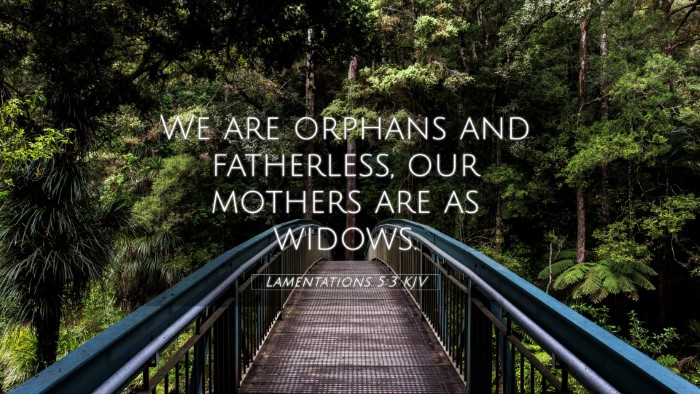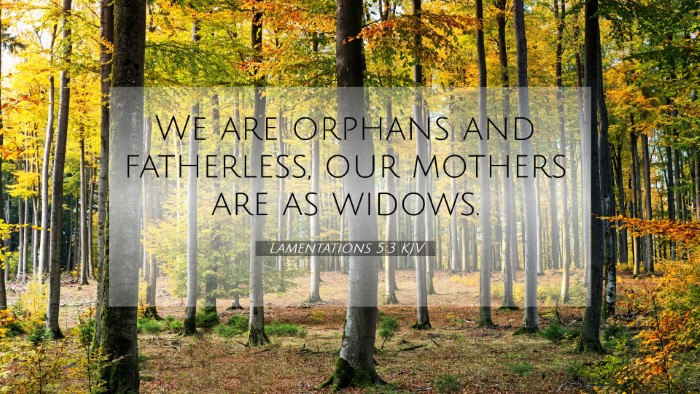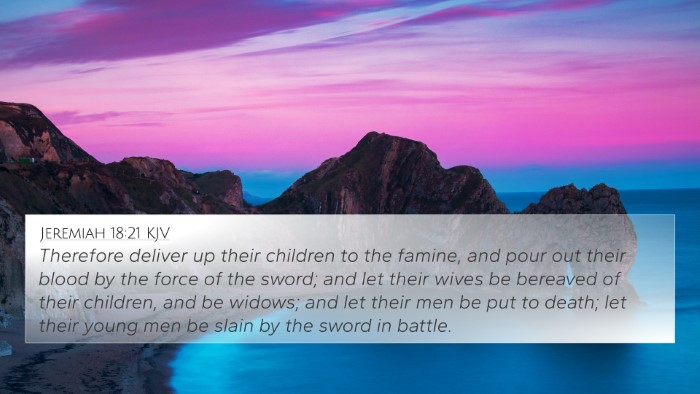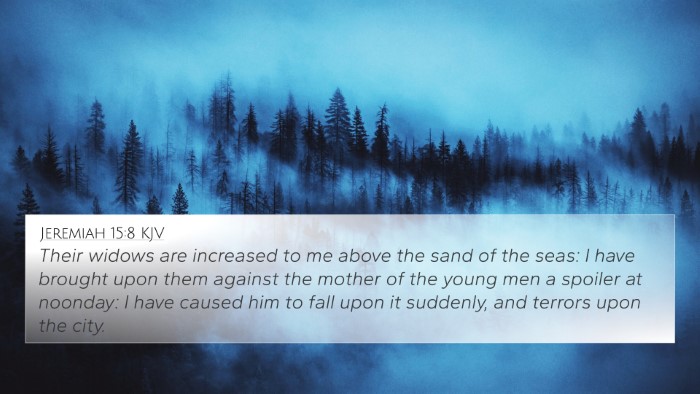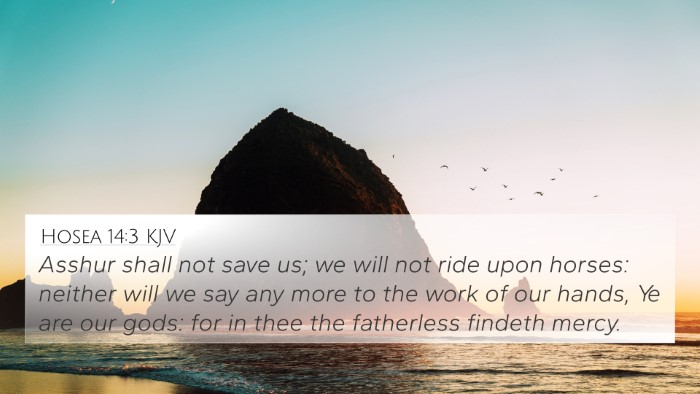Lamentations 5:3 - Verse Summary and Interpretation
Lamentations 5:3 states: "We are orphans and fatherless; our mothers are as widows." This poignant verse reflects the deep sense of loss and abandonment felt by the Israelites during their suffering and desolation, symbolizing not only physical loss but also emotional and spiritual desolation.
Contextual Overview
The book of Lamentations is a poetic expression of grief and sorrow over the destruction of Jerusalem and the suffering of its people. It serves as a lament for the loss of the nation, the Temple, and the presence of God among His people.
Analysis of Lamentations 5:3
According to Matthew Henry, this verse encapsulates the tragedy of the lives of those affected by the siege of Jerusalem. The imagery of orphans and widows underscores a complete loss of familial and social structure, signifying ultimate helplessness. The loss of parents represents a loss of protection and guidance, leaving individuals vulnerable in times of despair.
Albert Barnes elaborates further by emphasizing that the conditions described reflect not only literal loss but also Israel's spiritual exile from God. He suggests that the lack of parental figures and the state of being fatherless points to the people's yearning for a divine protector whom they believed had forsaken them due to their sin. This condition leads to a broader theme of desolation affecting the entire community.
Adam Clarke adds a historical context, explaining how the conquest of Babylon brought suffering that rendered families apart, making vast numbers of people helpless. He suggests that these verses illustrate the consequences of turning away from God and the subsequent void left in the lives of the people, both in a literal and metaphorical sense.
Thematic Connections
This specific verse is rich with thematic connections throughout the Bible, highlighting the following aspects:
- Loss and Desolation: A prevalent theme in many scriptures where God's people face the consequences of their actions (See Lamentations 1:1-2).
- Divine Abandonment: Similar sentiments can be found in Psalms (e.g., Psalm 22:1), illustrating feelings of forsakenness.
- Fatherless Children: The Bible often discusses the plight of orphans, as seen in James 1:27 and Exodus 22:22-24.
- Spiritual Exile: The theme of being distant from God echoes through passages like Isaiah 59:2.
- Yearning for Protection: The plea for divine help is common, in verses like Psalms 46:1.
Cross-Referencing Biblical Texts
To better understand the implications of Lamentations 5:3, we can draw connections to other verses that resonate with its themes:
- Psalms 10:14: God is a helper to the fatherless.
- Psalms 68:5: God is described as the protector of orphans.
- Isaiah 1:23: A critique of leaders who forget the plight of the vulnerable.
- Jeremiah 49:11: A call to care for the fatherless.
- Ezekiel 22:7: The neglect of orphans and the poor as a societal failure.
- Matthew 18:10: Jesus emphasizes the value of the little ones in the Kingdom of Heaven.
- John 14:18: Jesus' promise not to leave us as orphans, highlighting God’s concern for the lost.
Connecting Themes and Interpretations
The cross-references serve not only to deepen our understanding of Lamentations 5:3 but also provide a rich tapestry of inter-Biblical dialogue highlighting issues of care, neglect, and divine compassion.
Conclusion
In conclusion, Lamentations 5:3 is a profound expression of grief that resonates across the biblical narrative. It invites readers to reflect on the nature of loss and the critical need for divine and communal support. The connections between this verse and others across scripture reinforce the message of compassion and the uninterrupted presence of God's care for the vulnerable.

